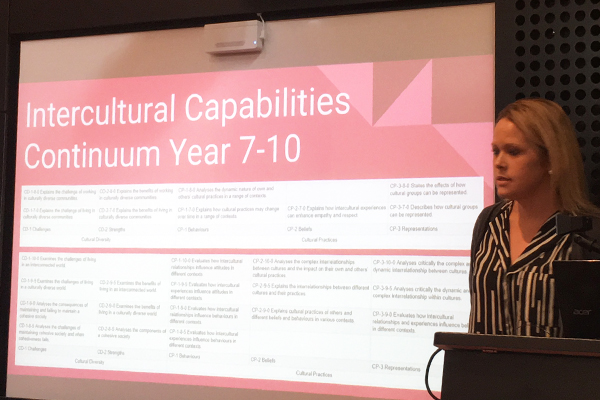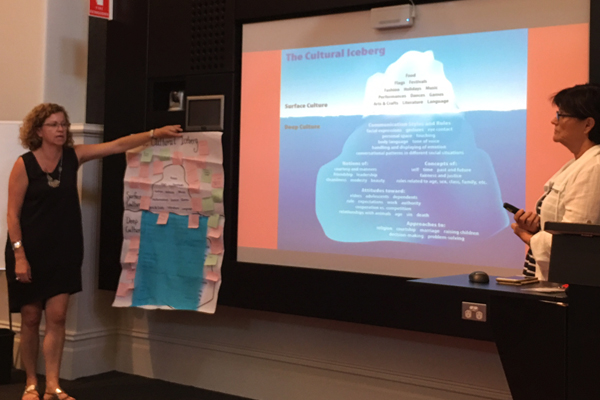by
User Not Found
| Apr 30, 2018
Kathe Kirby, Director, Asia Education Foundation
''I saw the future! It looks great, but we need to make changes in our curriculum so our students can be Asia ready.' Leading Asia Capable Schools Course participant, 2017

The just released Gonski 2.0 report identifies the priority for Australian schools to equip every child to be a creative, connected and engaged learner in a fast changing world. The report recommends an increased emphasis on teaching general capabilities in the Australian Curriculum. One capability common to all curriculum frameworks is ‘intercultural understanding’.
A group of school leaders in Victoria have been focused on developing what that capability looks like in practice in their schools. Primary and secondary principals from across Victoria participated in the Leading Asia Capable Schools Course at the Bastow Institute for Educational Leadership in 2016 and 17. The course, run by the Asia Education Foundation (AEF) and funded by the Victorian Department of Education and Training, was developed to address Victoria's position in a fast-changing world driven by increasing globalization, people mobility and the economic and strategic rise of Asia.
Leading Asia Capable Schools includes an initial school audit, workshops to explore what intercultural understanding means in the context of building young Victorians ‘Asia capability’, a 10-day immersion program in Shanghai to see globalisation in action, and a school based project. Most schools who participated had relatively high levels of engagement with Asia, including students, Asian languages and sister schools. But, despite this high engagement, there were relatively low levels of action and focus in the schools to build intercultural understanding or Asia capabilities.
The Post-Course evaluation indicated that a very significant shift had occurred in how schools were approaching building intercultural understanding and Asia capabilities. This progress was most evident in the results of the rigorous workplace projects participants conducted in their schools.
One metropolitan primary school improved how Asian cultures are reflected in the school curriculum by actively engaging their community’s growing number of parents from India and China in the curriculum planning process. Another principal set out to better engage with the Chinese parents in his community. ‘After my visit to China’, he said, ‘I came back with a new and better focussed direction on where I wanted our school to move towards with regard to making our students more Asia capable. My original idea was to focus on our curriculum but I came to realise that it was my people I needed to focus on first. Who were they? Did we acknowledge them at our school? Were we meeting their needs? Did they feel accepted within our school?’

Close to half the principals led rural Victorian schools. One school leadership team initiated the concept of ‘internationalising our school’. They identified the term ‘internationalising’ as a way of getting their community to think beyond their town, state and country. Another small rural school set out to initiate a languages program. The School Council determined that this would be Chinese - making this the only primary school in the region to implement a Mandarin program. The program has now been recognised in the community and the school’s numbers have already been boosted as a direct result. This tiny country school is now putting together a program where students from China come to the school for an eight-week block and they are working with a Mandarin speaking family in their community to create a ‘Mandarin Playgroup’ at the school.
Impressively, a school in a Victorian provincial city set out to develop their own set of learning progressions of what intercultural understanding looks like across learning domains. This is leading edge work and reflects one of the recommendations of the Gonski 2.0 Report that learning progressions be developed for the Australian Curriculum’s General Capabilities.
In 2018, AEF is collaborating with Bastow and the Victorian Department of Education and Training to increase the course focus on global citizenship. The Building Global Citizenship Course will be offered to Victorian primary and secondary school leaders in mid 2018. To express your interest in the program, please register your details here.
Comment